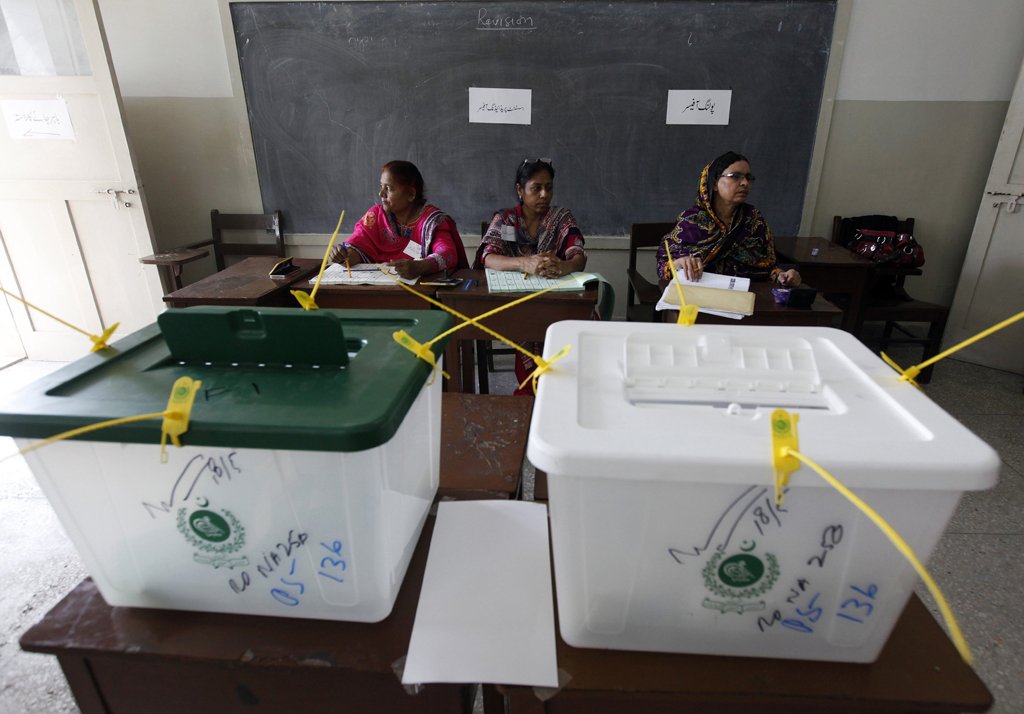
A three-judge bench, headed by Chief Justice Tassaduq Hussain Jillani, heard the case against the delimitation of constituencies in Sindh and Punjab.
The apex court also accepted the Sindh government’s appeal against the Sindh High Court’s verdict declaring the fresh delimitation ‘illegal’ right ahead of the polls. The bench sought details of the amendments made in the legislation by the Sindh government.
The apex court fixed the matter for hearing on January 27, whereas the hearing regarding LB poll in Punjab would be take place on January 13.
During the course of the proceedings, ECP’s Secretary Ishtiaq Ahmed apprised the bench that Printing Press Corporation of Pakistan had asked for more time, adding that they needed three more weeks to complete the task of printing the ballot papers.

He told the court that in view of the current situation it was impossible to hold the polls in Sindh and Punjab on January 18 and January 30 respectively.
The counsel for the poll body Akram Shaikh pleaded that the local bodies elections be postponed. He argued that two high courts have halted the election process and thus the process cannot continue until the elections were delayed or the judgments were suspended.
Responding to this, the Chief Justice questioned Sheikh if the elections would take place if the court postponed the polls.
On this, the Secretary Election Commission pointed out that the task of printing the ballot papers has not been assigned to the Printing Corporation of Pakistan in Sindh which would take at least three weeks to complete. He added that another week will be required for the ballot papers to be distributed across the province.
He said that the holding of the local body elections in Sindh was not possible before 23 February and in Punjab before 13 March.
The Chief Justice observed that the application of the Article 140 will have to be examined but added that a delay in polls will not be acceptable under any circumstances.
Arguing against the nullifying of the amendments in the Sindh Local Body Act, Advocate General Sindh Khalid Javed said that since the legislation was made in a hurry to comply with the court’s orders there was possibility of mistakes. He prayed the apex court to suspend the SHC verdict.
The CJP observed that there was no distinction of urban and rural areas in the Sindh Local Bodies Act while it is briefly mentioned in the local body act in Punjab.
Advocate General Sindh argued that the SHC decision would halt the entire process so much so that the elections of the national and provincial assemblies will come under question. He said that the process of delimitation has been completed across the province and electoral lists have been prepared accordingly, but if the court upheld the SHC decision the lists will have to be made again.
He said that the structure of the local body election in Sindh is the same as was adopted under the 1979 Act except for a few amendments which have been made to keep the election process free from any administrative influence. He said that under the new Act the authority to make the constituencies has been given to the election commission.
Meanwhile, Farogh Naseem, counsel for Muttahida Qaumi Movement (MQM) pleaded that the Sindh High Court verdict was applicable and the electoral process should not be stopped.
The court also allowed Sindh United Front and Functional Muslim League to become parties to the case.
Published in The Express Tribune, January 9th, 2014.
COMMENTS (1)
Comments are moderated and generally will be posted if they are on-topic and not abusive.
For more information, please see our Comments FAQ



1731655243-0/BeFunky-collage-(61)1731655243-0-165x106.webp)

1731668520-0/Express-Tribune-(11)1731668520-0-270x192.webp)



1731656720-0/Copy-of-Untitled-(44)1731656720-0-270x192.webp)
1731651715-0/Express-Tribune-(1)1731651715-0-270x192.webp)






To give another date for February or March is playing a joke with the voters and people contesting the elections. They will come up with a new date and get every one started again and at alst minute come up with the same excuses. Stop fooling!